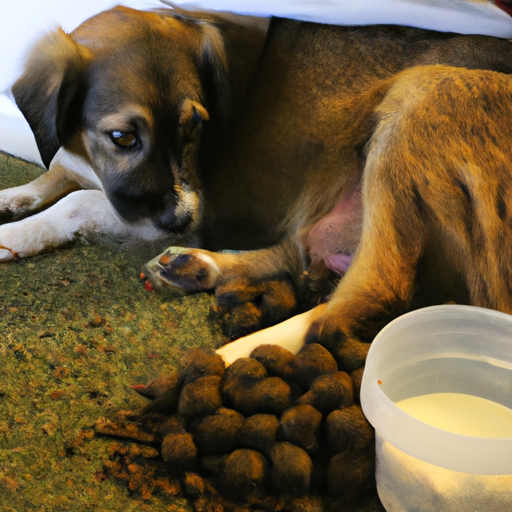Introduction
You may have heard about or witnessed a shocking behavior among female dogs – sometimes they eat their own puppies. It’s a behavior that might seem cruel and unnatural to us, but it happens in nature more often than you might think. Understanding why it happens can shed light on the complexities of canine behavior and help you better care for your furry friends.
Understanding Canine Maternal Instincts
At first glance, it might seem that maternal instincts would prevent a mother from doing anything harmful to her offspring. However, in the animal kingdom, things aren’t always quite so black and white.
- Survival Instincts: In the wild, a weak or sickly pup might attract predators, putting the entire litter at risk. In this case, a mother may choose to eat the puppy to protect the rest of the litter.
- Environmental Stress: If the mother feels threatened or stressed, she might react by eating her puppies. This could be due to a lack of secure space, too much noise, or even the presence of other animals.
- Nutritional Needs: After giving birth, a mother dog’s nutritional needs are high. If she’s not getting enough food, she might resort to eating her puppies to recover.
Recognizing the Signs of Cannibalistic Behavior
While this behavior is rare in domestic dogs, you should still be aware of the signs. Here are a few things to look out for:
- Aggression towards the puppies
- Refusal to nurse
- Isolating one or more puppies from the litter
If you notice any of these signs, it’s important to intervene. This might involve moving the puppies to a safer location or reaching out to a vet or animal behaviorist.
Steps to Prevent Cannibalistic Behavior
Fortunately, there are steps you can take to prevent this behavior from occurring in your dog.
- Provide a Calm Environment: Make sure your dog has a quiet, secure place to give birth and care for her puppies. This can significantly reduce stress and anxiety, decreasing the likelihood of cannibalistic behavior.
- Adequate Nutrition: Ensure your dog has enough to eat, both during pregnancy and after giving birth. This might involve increasing meal sizes or frequency.
- Regular Vet Care: Regular check-ups can catch health problems before they become serious. If a puppy is sick, a vet can provide treatment, reducing the chance that the mother will feel the need to cull the litter.
How to Handle the Situation
If your dog has already engaged in this behavior, it can be shocking and distressing. Here’s what you can do:
- Remove the Remaining Puppies: To protect the rest of the litter, you might need to remove them from the mother’s care. This should be done gradually and carefully, with the guidance of a vet or animal behaviorist.
- Seek Professional Help: Contact your vet immediately. They can provide advice and resources, and can help you determine if there are underlying health issues that need to be addressed.
- Provide Emotional Support for Your Dog: This is a stressful time for your dog, too. Provide plenty of love and reassurance to help her through it.
Frequently Asked Questions (FAQs)
Q: Is it common for dogs to eat their puppies?\
A: While this behavior is more common in the wild, it’s relatively rare in domestic dogs. However, it can occur under certain circumstances, such as extreme stress or poor health.
Q: Can a dog who has eaten her puppies be trusted with future litters?\
A: It’s hard to say. It often depends on the reasons behind the behavior. If it was due to stress or a lack of resources, improving these conditions could prevent the behavior in the future.
Q: What should I do if my dog eats her puppies?\
A: Contact a veterinarian immediately. They can provide guidance and help determine if there are any underlying health issues to address.
Q: Can this behavior be prevented?\
A: Yes, by providing a calm environment, adequate nutrition, and regular vet care, you can greatly reduce the chances of this behavior occurring.
Remember, while this behavior can be distressing, it’s often a sign that something is wrong. By understanding the reasons behind it and taking steps to address them, you can help ensure the health and happiness of your dog and her puppies.



